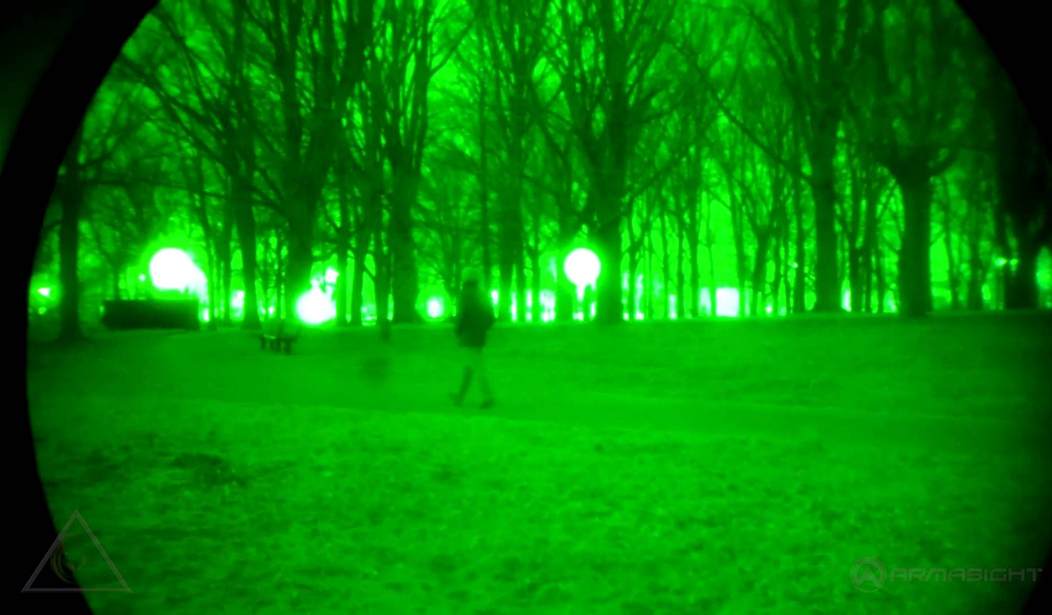We’re publishing a weekly series of articles covering each week’s Torah portion as a rabbi (such as the author) might do via a talk in a synagogue. The series is tailored so it may also be read by non-Jews who may be interested in how Jews read and interpret Scripture. Click here for the first article in the series.
——————————
Dëvar Torah – Parashath Shëlach (Numbers XIII, 1-XV, 41)
This week’s parasha tells the story of the mëraggëlim, the spies whom Moshe sent out to study the strategic situation of the Promised Land on the eve of its conquest. Of these twelve worthy men, ten issued a despairing report that the new country was too strong, too well-defended to be taken by a rabble from the desert.
Only two of the scouts — Yëhoshua bin Nun of Efrayim and Kalév ben Yëfunneh of Yëhuda — presented a “minority report” that, despite all appearances to the contrary, Israel had to have faith that G-d had not brought them out of Egyptian bondage to die futilely, but that somehow they would overcome all the obstacles.
Their report was not accepted. Israel’s faithlessness so angered G-d that He considered destroying them then and there.
In the end, the compromise solution negotiated by Moshe called for Israel to remain in the desert another 38 years, so that the generation of the spies would die out and the younger generation raised in the desert would inherit the Promised Land.
The entire episode seems surreal.
This was the generation which had seen Egypt, the superpower of the day, laid low by the Ten Plagues and the Splitting of the Sea. They had seen the majesty of G-d revealed to them at Sinai, received their very daily sustenance through the fall of manna in the desert, and were the daily beneficiaries of many other miracles there. How could they possibly doubt the power and ability of G-d to deal with the Canaanites, no matter how strongly equipped and defended, after all that?
The question would seem to be not how Kalév and Yëhoshua maintained their faith in the face of overwhelming force, but rather what caused their colleagues to issue a report which constituted lëshon hara‘? Especially, as Rashi notes, so soon in the wake of Miriam’s example?
The Talmud (Sota 34b) explains the language of XIII, 2 — “Send for yourself [shëlach lëcha] men who will tour the land of Canaan” — in terms of a grant of permission rather than a command, which is deduced from the word lëcha. The great 19th century sage Rabbi Naftali Tzëvi Yëhuda Berlin (Nëtziv), in his Ha‘améq Davar, questions this interpretation on the grounds that the construction with lëcha is in fact a fairly common Biblical formula. For example, in Genesis XXI, 1 Avraham is told to go forth (lech lëcha) which no one interprets as granting permission to go.
He then defends the Talmudic interpretation in a way that answers our question.
Israel’s sojourn in the desert was indeed accomplished with the help of the supernatural and miraculous. However, living under conditions of such direct Divine supervision imposes a terrific strain on human beings, even such exalted and holy personages as beheld the revelation at Sinai. The Nëtziv speaks of this in terms of living in a metaphorical royal palace where one must always be on one’s best behavior. Thus, Israel heaved a collective sigh of relief at the prospect that the conquest of the Promised Land would take place “naturally,” on the evidence of the reconnaissance mission.
The problem lay in the question of what that meant. Had the conquest taken place as supernaturally as had the Exodus, there would of course have been no need for any spying or scouting of the opposing Canaanite forces. They would have simply gone the way of the Egyptian army.
The granting of permission to scout out the terrain, as any “normal” invading army might do, was an announcement that there would be no such intervention.
The majority of the scouts seem to have held that this meant Israel would be on its own, forced to rely on their own resources in the coming invasion. They thus looked at the size, number, and power of the inhabitants “realistically,” and concluded that they had no chance. They might just as well not have left Egypt.
Yëhoshua and Kalév, on the other hand, understood that teva‘, “nature,” is an illusion, a form imposed by an outside force (from the same root as matbéa‘, a coin, whose value is tamped onto a metal blank). Though direct Divine revelation such as had been evident in Egypt would not be in effect, G-d would still be pulling the strings. “Natural” events would happen as one needed them. “Luck” is no less miraculous a thing than the more obviously supernatural ones, but the one requires the eyes of emuna, “faith,” to discern it.
Near the end of the parasha (XV, 32-36) an obscure incident is recorded which sheds further light on this dichotomy of attitudes. A man is caught gathering wood on the sabbath, a clear violation of the halacha. He is arrested and brought before Moshe and Aharon at the head of the Sanhedrin, who judge him and determine what the means of execution is to be — and he is executed.
The story fairly cries out “interpret me!” in that it seems almost random, unrelated to anything that went before or comes after. The Talmud (Shabbath 97a) records in the name of Rabbi ‘Aqiva that the name of the wood-gatherer was Tzëlofchad, whose daughters were subsequently granted rights of inheritance since he had no sons (XXXV, 1-11).
The Talmudic passage goes on to record a conversation between Rabbi ‘Aqiva and Rabbi Yëhuda ben Bëtheira, one of his students. Rabbi Yëhuda was bothered by his teacher’s statement, noting that if it is accurate, then by revealing the name of a sinner whom the written Torah does not name he has brought further shame upon the man’s memory. However, if — G-d forbid — the statement is not accurate, then Rabbi ‘Aqiva had defamed an innocent man!
The 20th century sage Rabbi Baruch haLévi Epstein, in his Torah Tëmima, resolves this dilemma by calling our attention to a passage in the Sifrei that Israel at this time was extremely lax in sabbath observance. Therefore, reasons Rabbi Epstein, Tzëlofchad set out deliberately to be caught and punished to serve as a self-sacrificial example to Israel of the consequences of sabbath desecration.
Thus, by mentioning his name, Rabbi ‘Aqiva was not defaming him, but calling attention to him as a very rare sort of tzaddiq — one who was capable of an ‘aveira lëshém shamayim, a “transgression for the sake of heaven.”
There is in fact a further hint that the story of Tzëlofchad is more than it seems, in that although his daughters quite readily admit ki bëchet’o méth (“that he died because of his sin”), the Torah very carefully relates his yichus, his “family tree” — something which is generally reserved for tzaddiqim.
That said, why did the Torah not record the man’s identity directly and leave it to the oral tradition? Because (in my humble opinion) his was not an example to publicize or emulate, however holy his intentions.
Returning to the matter at hand, the Torah Tëmima goes on to offer an explanation for this laxity in Israel: having discovered that they were not to inherit the Holy Land, the generation of the Exodus gave up on following the Torah’s commandments. This is what Tzëlofchad set out to correct.
Israel had become Israel only through qabbalath haTorah, acceptance of the Torah no matter what the circumstances. Israel’s nationhood (as the father of Jewish philosophy, Rav Sa‘adya Ga’on, proclaimed in the 10th century in his Emunoth vëDé‘oth, is dependent only on Torah, not on Blut und Boden, not language nor any other nationalistic determinant.
The covenant between Israel and Ha-Shem is eternal and predicated on Israel’s emuna and ‘avoda (“faith and service”), no matter how removed from objective reality that emuna and ‘avoda are in others’ eyes.









Join the conversation as a VIP Member